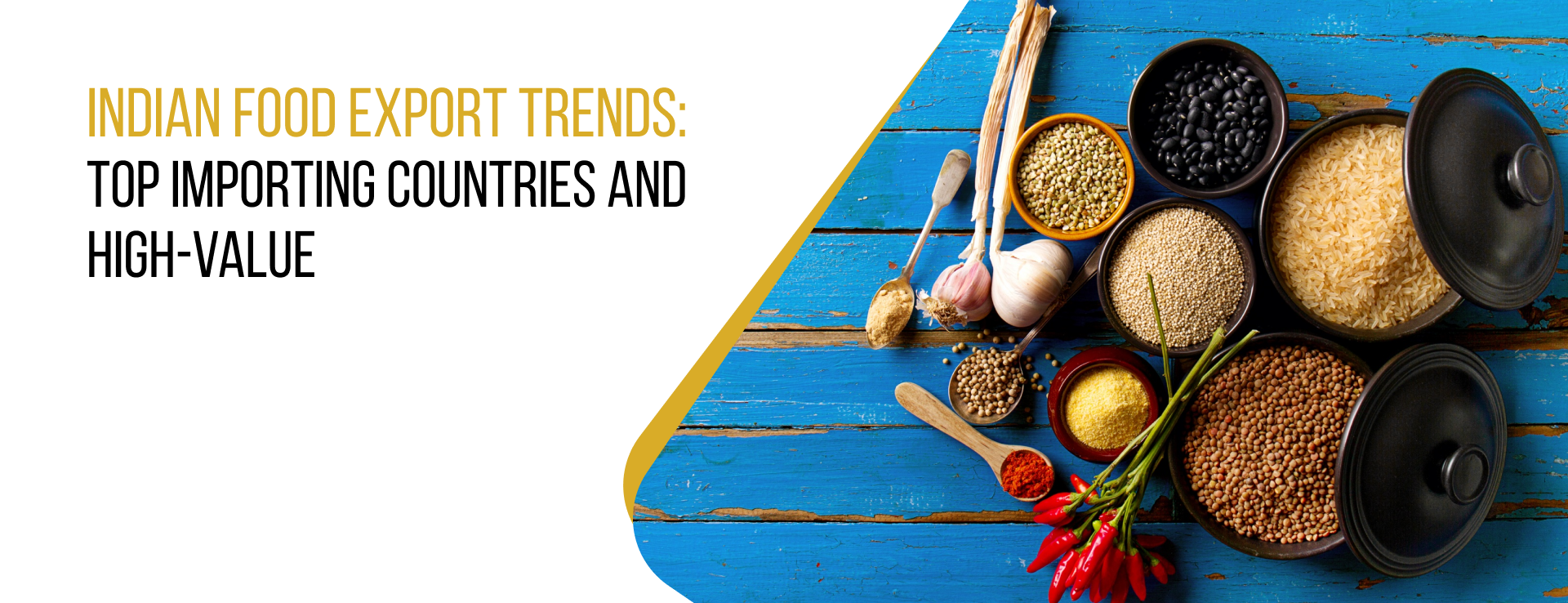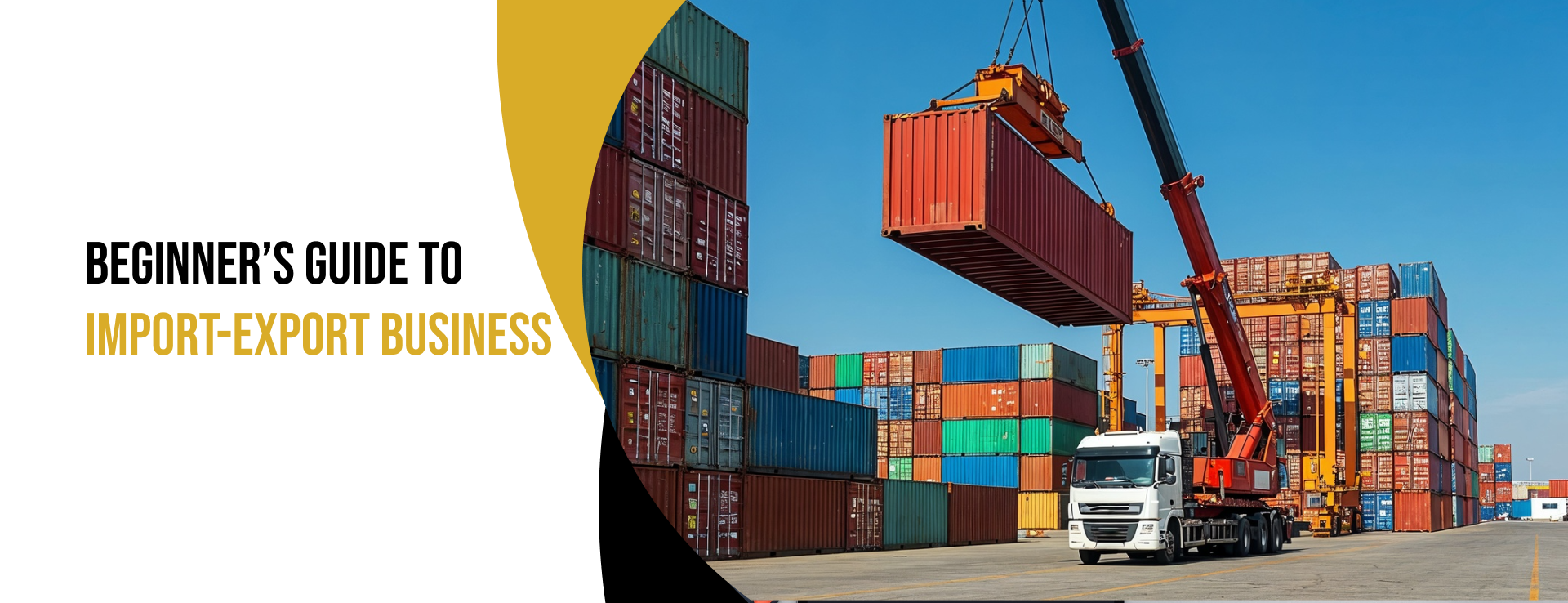Beginner’s Guide To Import-Export Business: Using Data To Fuel Global Trade
In ancient times people traded goods in exchange for other goods like rice grains. clothes, spices, and tools in small circles. Further money was introduced and the exchange trade got simple and fair, while the circle of exchange got bigger. The local exchanges shifted to global. Moving decades ahead, money is now the medium of exchange and communication across the globe.
Import and export is the core of global trade. It enables nations to exchange goods and services across borders and drives economic growth and development. It strengthens the supply chain and creates opportunities, competition, innovation, and foreign revenue.
Get Access To Global Trade DataWhy Are Goods Imported?
The demand for import-export business is driven by the consumers' demand for a specific variety of goods that are not produced locally. The nations also import goods to fill the gap of low domestic production.
Why Are Goods Exported?
Governments' and private businesses' import and export business is driven by the aim to increase business revenue, expand global networks, reduce expenses through large-scale production, support nations' economic growth, strengthen currency value, and increase foreign reserves.
Import/Export For Beginners And Small Businesses
Advancing technology, consumers' demand for varied products, and ease of trade policies are driving the growth of international trade. Import/export businesses can be started at a lean level with niche products. Import/export business benefits include diversified risks, increased revenue, varied clientele,
Step-By-Step Guide To Starting Your Import-Export Business
Here are detailed steps for starting an import-export business. If you are an existing businessperson who wants to expand the business, start by ensuring you are following the first six steps, and then you can follow the last two steps to scale your business.
1. Market Research
Choose your product based on the market demand, availability, supply chain, manufacturing process/costs and target audience. Decide on the audience and platforms to sell. Learn HS code-wise segregation of the product. Conduct research to understand the viability of the product. Create a business plan.
2. Registration
Choose a business type and register the structure and name. Create a bank account, obtain an Import Export Code (IEC), and register with the appropriate authority based on the country and product for industry or country-specific certification. For example, registering for FSSAI for food products.
3. Arrange Finances
Plan the budget and arrange working capital. Learn about institutions and requirements for securing trade finances along the way. Arrange for letters of credit, which act as insurance against nonpayment of international bills.
4. Product Sourcing
Build a network of supplies based on quality, pricing, availability, and supply capacity of products. Create an online presence to create ease of access for sellers. Use a trusted wide network platform like Ex-Im to reach out to verified sellers.
5. Master Logistics & Shipping
Understand the international commercial terms and defined roles and responsibilities of buyers and sellers. Learn the transportation medium, mandatory export paperwork, costs, timelines, compliance, risks, etc. Decide on shipping methods, and partner with experts for transportation, logistics, customs clearance, documentation process, and cargo insurance.
6. Organize Documentation
The list of documents includes a pro forma invoice, a commercial invoice, a packaging list, an airway bill, and a certification of origin. import-export license, etc. Learn, organize, and maintain this mandatory export paperwork, or hire an expert to manage this documentation.
7. Market And Sell
Ensure your online presence highlights your export products. Develop a marketing strategy based on your product, market, and target audience. Track market trends and reach out to verified buyers through the Ex-Im app by Dollar business. Export your product at a competitive price.
8. Manage Risks
Manage risks by tracking market trends, monitoring competitor analyses, and expanding the diverse market of verified buyers. Build long-term relationships with multiple industries across different nations to maintain trade balance. Aim for long-term business by studying clients' ongoing imports and pitching during peak demand periods.
Get Access To Global Trade DataWhat Is The Role Of Import-Export Data For Beginners?
Trade statistics act as a base in the new business. It helps with multiple things like spotting trends, identifying opportunities, analyzing competitors, and discovering and verifying reliable buyers and sellers. It supports the optimization of the supply chain, reducing risk and increasing success rates through data forecasts and strategic planning. It helps track potential risks, increase efficiency, and reduce financial risks through diversified markets. Trade data and updates can be accessed through various platforms like government portals, international organizations, and specialized trade data platforms like Ex-Im by The Dollar Business.
What Is The Role Of Trade Data In Expanding Existing Business?
Trade statistics in existing businesses support both sustainability and growth. It helps understand the global market demand and supply curve. It assists in discovering new opportunities and optimizing the supply chain with diversified sellers. It helps in monitoring competitor analysis risk management through anticipation of changes in the market, ensuring compliance. It assists in diversifying the buyer market and reducing financial risks.
What Is The Role Of Import-Export Data In Global Trade?
Trade data includes global information on import-export trade volumes, pricing, HS codes, buyer and supplier details, regulation, and compliance. Trade data empowers global trade. It builds awareness of the demand and supply market and regulations across the nations. It helps businesses and government analyze global demand and supply and assists in planning production, sales, and long-term partnerships. It also acts as the foundation of the creation and amendment of government trade policies.
How Trade Statistics Unlocks Success: Lessons From Grape Exports (HS Code - 0806)
.png)
Trade data statistics share detailed insight for the export of products, simplifying global trade. As shared in the example of grapes export data above (2024-2025), it helps identify key players and demand for grapes. The data helps explore major global grape-importing countries, like Russia and the United States, as well as major exporters, such as Uzbekistan and Peru.
Further analysis of data depicting company-wise major buyers and sellers of grapes, namely JSC Arviay Russian Venture Investments, and the supplier list (including LLC Jetone) allows companies to identify potential partners, plan their performance against competitors, and strategize plans to start export business or expand existing business.
This detailed view of market trends and volumes of sales helps plan business strategically and acts as the basis of deciding production and purchase quantity. It also helps learn top buyers, sellers, and their trade worth.
In A Nutshell
In the present globalized economy, a major share of import-export is covered by SMEs and startups among the stable and giant organizations. Trade data is a powerful tool that enables sustainability and growth. It assists in understanding the market and building a strong network of buyers and sellers. Whether you are a stable business, an SME working towards expansion, or a new beginner, trade data helps in understanding market dynamics. compliance, competitor analysis, and verified buyers and sellers.
Frequently Asked Questions (FAQs)
1. What is the cost of getting an IEC Code in India?
The IEC can be obtained from the DGFT government website for Rs.500 in India.
2. Can I start an import/export business from home?
Yes, you can start an import/export business from home by focusing on online marketplaces, dropshipping with, you can also be a middleman between a supplier and a buyer.
3. Do I need a separate license for each product?
Yes, most of the products need separate certifications like FSSAI for food products.
4. What are the mandatory documents required for export?
The mandatory document lists include a pro forma invoice, a commercial invoice, a packaging list, an airway bill, and a certification of origin, while businesses need to have an IEC and an Authorized Dealer code (ADC) along with certain product-specific certificates.
5. How do I find international buyers for my export product?
Track market trends through government and international websites, and utilize paid private platforms to reach out to verified international buyers for export purposes.
6. What is the role of the HS code in import-export?
The Harmonized System (HS) code is a universal standardized numerical system used for classifying goods. It eases the customs clearance process, enables accurate tariff and duty collection and supports the collection of international trade.
7. Is the import/export business profitable for small traders?
Yes, the import/export business is profitable for small traders too. The success rate depends on market research. Export of niche products with high demand and needs the accuracy of trading with verified buyers and suppliers.
Recent Blogs

Indian Food Export: Sectors | Trade Data |Top Importing Countries
Explore Indian food export trends top importing countries sectorwise trade data and how datadriven insights shape global food market growth

Top 5 Products: India Exported To Brazil
Know IndiaBrazil trade the top 5 key exports imports trade surplus increase and Industry intel Datadriven keen search of international traders

The Top 10 Exporting Countries Of Copper In The Global Market
Explore copper export from India its role as a leading copper production country top copper exporting countries biggest copper exporters & growing impact



